Pray Without Ceasing || April 14-17, 2008—Chicago, Illinois
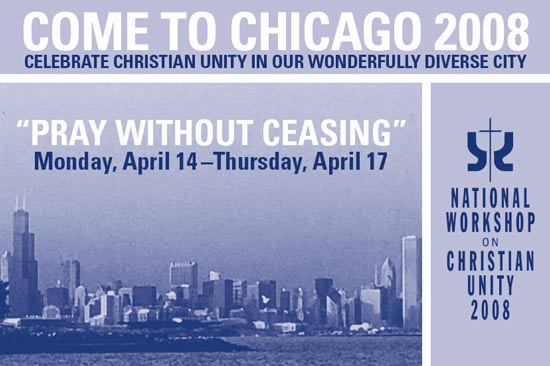
Seminars
- Ecumenism 101
Dr. Thomas Ferguson
Dr. Michael Trice
This seminar is for newcomers to formal structures of the ecumenical movement. It provides a brief history and introduction to the movement, context for current dialogues, overview of national and international ecumenical conversation and engagement, and a sampling of new and emerging discussions. The presentation will draw on the attendees’ experience of ecumenical engagement and will encourage conversation and interaction.
- Beyond Bilaterals: Ecumenical Implications of the Joint Declaration on the Doctrine of Justification
Rev. Dr. Cheryl M. Peterson, ELCA
Rev. Dr. Michael Lee Nelson, UMC
Br. Jeffrey Gros, FSC
Dr. Peterson will speak on the JDDJ and introduce the idea of ‘beyond bilateral’ which emerged in the Columbus 2001 consultation. Dr. Nelson will refer to the association of the WMC with the agreement on the doctrine of justification as stated in the JDDJ, what happened in Seoul in July 2006 and what the implications might be. Br. Gros will open the discussion further to the understanding of the doctrine of justification in other traditions, such as Orthodox and Baptist, in relation to the JDDJ
and the association statement.
- Baptism: Ecumenical Impications of Theology, Ritual and Practice
Rev. Ruth A. Meyers
Very Rev. Robert B. Flannery
This seminar will focus on the theological and practical implications of Baptism as put forth in the recent survey and subsequent document of the Illinois Conference of Churches, “Baptism: An Ecumenical Study of Similarities, Differences and Opportunities.” Other studies and research will be used as background and supportive material. Discussion will be held regarding ways to celebrate baptism for inter-church couples as well as consideration of the use of an ecumenical baptism certificate.
- Ecumenical Scripture Studies: Can We Read Scripture in Common? An Ecumenical Bridge
Dr. Frederick Gaiser
Dr. Philip Towner
How can ecumenical partners study the scriptures together? Is there a distinct method or venue or historical vantage point that has enabled an ecumenical approach to biblical exegesis? Should all responsible scripture study today reflect ecumenical awareness? What ingredients would such ecumenical awareness bring to biblical interpretation?
- A: Capacity of Faith to Inform Culture in the 21st Century: “The Christian Faith as the Matrix for Culture”
Rev. Robert Barron
This presentation will show how the fundamental doctrines of Christianity—creation, Trinity, grace, redemption, resurrection—provide the matrix for a whole way of thought and action. Throughout its history, this distinctively Christian culture has been in a tensive relationship with the various cultures that it has confronted. The same is certainly true today. The workshop will explore ways in which the conversation between the Christian and secular cultures can be facilitated.
B: Capacity of Faith to Inform Culture in the 21st Century: “Faith Generates a Culture: the Challenges of Secularism, Nihilism, and Ecumenism as seen from a Latino Catholic Perspective.”
Dr. Peter Casarella
Christian faith has as its very foundation a belief that Christ is revealed as a new Adam, whose mission for the world includes the promotion of the unity of all believers and of mankind. The faith of Latina and Latino Catholics is sometimes falsely portrayed as inhabiting a cultural and religious barrio in which little or no attention is paid to this fundamental truth. The point of this presentation will be to reflect on the Biblical, spiritual, and ecclesiological foundations for making a proposal generated in and through the Christian faith that will foster genuine unity in the world today. In the process, the specific challenges faced by Latino Catholics with regard to secularism, nihilism, and the Biblical mandate for Christian unity will also be discussed.
- Ecumenical Advocacy on Moral Issues
Rev. Dr. Michael Kinnamon
Advocacy offices in Washington are sponsored by the churches to enable ready access to government and timely response to its actions. How do these offices work? How are current moral issues addressed, issues of war and justice, economics, human rights, and advances in medical science, to name a few? Is there an ecumenical approach to global issues such as genocide, interreligious violence, the AIDS crisis, to enable a united Christian voice to be heard?
- Emerging Church
Dr. Dwight Friesen
An introduction to the Emerging Church movement and its participation in, perceptions of, and commitment to the ecumenical movement.
- HIV/AIDS: Parallel and Together
Right Rev. John B. Chane
His Grace Bishop Demetrios of Mokissos
The scourge of the HIV/AIDS epidemic is being addressed by organizations and churches worldwide. Clergy and lay people, working as individuals and in groups within and outside of the Church, have initiated programs designed to train health care workers, to support the education of individuals and families, and to assist other organizations in their attempts to obtain access to treatment and to help stop the proliferation of the virus. One such program is the “Treatment Action Campaign (TAC)” founded in Cape Town, South Africa, in 1998. Right Rev. John Chane, Episcopal Bishop of Washington, DC, and Bishop Demetrios, Greek Orthodox Metropolis of Chicago, will present their insights and what the churches are doing and can do.
- How Dynamics of Race Influence Ecumenism (historic and current)
Bishop Thomas E. Hoyt, Jr.
Rev. Stanley L. Davis, Jr.
The present-day ecumenical movement began at a time when most of today’s communions were segregated (by church law or defacto). The only African American communions participating in the movement are the historic Black Methodist Churches. This seminar will explore the reception received by these Churches (i.e. Christian Churches Together) and how race has surfaced in recent years as a primary focus of Churches Uniting in Christ.
- The Church and the Triune God: Agreed Statement of the Anglican/Orthodox Theological Dialogue
Bishop Mark Dyer
The Cypress Agreed Statement of the International Commission for Anglican—Orthodox Theological Dialogue is the fruit of the third phase of Anglican—Orthodox international dialogue. It reflects the further consideration given to ecclesiological issues discussed in earlier phases and registers considerable agreement over a range of issues ranging from the Trinity and the Church to Episcopé, Episcopos and Primacy, to Priesthood, Christ and the Church, and deals with such controversial issues as Women and Men, Ministries and the Church and Heresy, Schism and the Church. Bishop Dyer served as co-chair of the Commission which produced this document from 1990.
- New Horizons in Christian Unity
Rev. Raphael Allen
Mr. A. J. Boyd
Dr. R. M. Keelan Downton
Believers, not belongers; Spiritual, not religious; Post-ecclesial, not post-Christian. How has the generation that grew up with the internet, cell phones, and the multimedia worship experience engaged the ecumenical mandate? What is on the horizon as Generations X and Y grow in their contribution to the call for unity? The panel will discuss the future of ecumenical efforts from diverse perspectives within the postmodern generations.
- State Councils of Churches: Focus on Structure
Rev. Dr. Jane Fisler-Hoffman
Rev. Warren Murphy
The reality of less time and money available for our churches has implications on the statewide ecumenical level. Over the last few years, the Illinois Conference of Churches has gone through a process of restructuring partially due to those factors, but also out of a definite intention to create something new in regard to ecumenical dialogue and procedure. The State of Wyoming also has a unique way of approaching ecumenical matters for its member judicatories. These diverse states, one large and one small, will be used as examples. We will see how they function structurally in today’s ecumenical climate and share ideas as well as possible directions for the future.
- Theology Student Essay Contest
Winners
In honor of the 100th anniversary of the observance of an octave of prayer for Christian unity by the Society of the Atonement at Graymoor, NY (which later came to be known as the Week of Prayer for Christian Unity), theology students have submitted papers using the Week of Prayer for Christian Unity Theme, “Pray without ceasing.” Students have been asked to explain how the theology and practice of prayer promotes and brings about an eschatological reality and promise of Christian Unity. They have also been asked to write a prayer that speaks to their own tradition’s understanding of this eschatological reality and promise. Come explore and discuss with these students.
- Analysis on Full Communion
Very Rev. Dr. William H. Petersen
For several years the Faith and Order Commission in the United States studied the emergence and use of the term “full communion” in the ecumenical movement. This workshop comes out of the corpus of that work and, with attention to diversity of usage and progress of reception, will present an analysis of the term in regard to its problems and possibilities in forwarding the ecumenical movement.
- Interreligous Relations Chicago Style: Edgewater Community Relations Association (ECRA)
In many Chicago neighborhoods, churches and synagogues are collaborating with programs designed to help keep their community viable by addressing multiple issue of poverty, crime, homelessness, hunger, loneliness and mental illness. A panel from ECRA churches, synagogues and mosques will explore interreligious relations within a multi-cultural community.
- Muslim-Christian Women: Two Models of Chicago Dialogues
Ayse Arslan, Executive Assistant, Niagara Foundation
Rev. Catiana McKay, United Methodist Church
Dalila Benameur, Mosque Foundation, Bridgeview IL
Andreatte Brachman, St. Fabian Roman Catholic Parish
Chicago is home to a large and growing Muslim community. Over the last decade many exciting initiatives have emerged, especially among women. A Muslim and a Christian will share experiences of their women’s dialogues. One dialogue is between the Turkish Cultural Organization and the Northern Illinois United Methodist Church Conference. Another dialogue is between women members of the Mosque Foundation and St. Fabian Catholic Church, Bridgeview, Illinois.
- Chicago Ecumenical Story: A Protestant Ecumenical Experience of Shared Ministries
Rev. Monte Johnson, Immanuel Evangelical Lutheran Church, ELCA
Rev. Gabi Aelabouni, St. Elias Christian Church, ELCA
Rev. Larry Kamphausen, Church of Jesus Christ, Reconciler
Rev. Laura Gottardi-Littell, Church of Jesus Christ, Reconciler
A panel will tell how a group of churches in Edgewater have creatively shared collaborative ministries beyond denominations to act ecumenically at the grass roots. The leaders in the Edgewater area will describe their ministries together. - Social Justice Chicago Style: Keeping the Family Together
Rev. Jacques Conway, Neighborhood United Methodist Church
Ms. Elena Segura, Assistant Director, Office for Peace and Justice, Archdiocese of Chicago
Imam Abdul Malik Mujahid, President of Council of Islamic
Organizations of Greater Chicago
Mr. Nazar Sloboda, Ukrainian Catholic Eparchial Chancery Staff
There are many justice issues that ecumenical coalitions address in the urban context. Using the lens of “keeping the family together” our panelists address three areas of concern: Gun violence, immigration and community organizing.
Featured Speakers
PREACHER: OPENING PRAYER SERVICE
Sr. Dr. Lorelei F. Fuchs, SA
Theological Consultant, The Interchurch Center
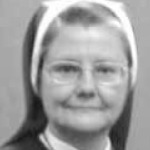
Sister Lorelei Francis Fuchs, SA is a member of the Society of the Atonement, Graymoor, Garrison, NY. She is currently theological consultant at The Interchurch Center, New York. Prior to joining the Center’s administrative staff, she was an associate director of the Graymoor Ecumenical & Interreligious Institute, New York. Sister participates in various local bilateral dialogues in New York and serves on the National Council of Churches Faith and Order Commission. She is a member of the Methodist-Roman Catholic Joint Commission and a member of the Plenary Commission of the World Council of Churches Faith and Order Commission. On the National Planning Committee of the National Workshop on Christian Unity, she was National Chairperson for the 2006 workshop. Sr. Fuchs is an adjunct lecturer of religion at Mercy College, Dobbs Ferry, New York and a summer lecturer at the Centro Pro Unione, Rome. She is on the staff of the Centre for Ecumenical Research of the Faculty of Theology, Katholieke Universiteit Leuven, Belgium, where she has also lectured. Co-editor of Encounters for Unity and of Growth in Agreement III and author of Koinonia and the Quest for an Ecumenical Ecclesiology, Sr. Lorelei’s other published works include articles in various journals and books, compilations of ecumenical bibliographies and handbooks. Sr. Fuchs holds a Bachelor of Arts degree (AB) from Wheeling Jesuit University, West Virginia and a Master of Arts (MA) in Theology from the University of Notre Dame, Indiana. Her second Master’s degree (MTh) is from the Katholieke Universiteit Leuven (Louvain), Belgium, where she also received a Sacrae Theologiae Licentia (STL), a Doctor of Theology (PhD) and a Sacræ Theologiæ Doctor (STD).
KEYNOTE SPEAKER
Rev. Dr. Michael Kinnamon
General Secretary of the National Council of Churches of Christ in the USA
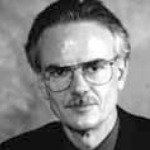
Michael Kinnamon is widely regarded as a leading voice in the ecumenical movement and in his denomination, the Christian Church (Disciples of Christ). Before assuming leadership of the NCCCUSA, he was the Allen and Dottie Miller Professor of Mission and Peace at Eden Theological Seminary where he taught courses in the global and local mission of the church, the history and theology of the ecumenical movement, peace and justice, interfaith dialogue, modern theology and literature from around the world. He has served as the Executive Secretary of the World Council of Church’s Faith and Order Commission and General Secretary of the Consultation on Church Union (now Churches Uniting In Christ). He recently chaired the Justice and Advocacy Commission of the National Council of Churches of Christ in the USA. In 2004 he received the first Award of Excellence for Work in Christian Unity from the National Council. Dr. Kinnamon is the author or editor of a dozen books, the most recent being, The Vision of the Ecumenical Movement and How It Has Been Impoverished by Its Friends. He and his wife, Katherine, also an ordained minister in the Christian Church (Disciples of Christ), coauthored a book of daily prayer, Every Day We Will Bless You.
BIBLE STUDY LEADER
Dr. James W. Fleming
Director of the Explorations in Antiquity Center in LaGrange, Georgia
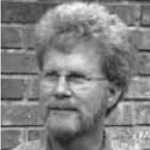
James W. Fleming is an internationally renowned archaeologist and educator of the biblical world. Dr. Fleming is the director and founder of the Explorations in Antiquity Center in LaGrange, Georgia, an archaeological museum and teaching center with full-scale replicas of important archaeological sites in the Middle East that have been created to help students better understand the Hebrew and Greek scriptures. He also founded the Archaeological Museum and Pilgrim Center at Ein Karem, Jerusalem. He is on the Advisory Board of Biblical Archaeology Review and has taught archaeology and biblical geography at the Ecumenical Institute for Advanced Theological Studies, a Vatican-owned ecumenical institution between Jerusalem and Bethlehem. He has been adjunct faculty for St. Olaf College, Northfield, MN; St John’s Seminary, Collegeville, MN and St. Michael’s College, Toronto, Canada.
Dr. Fleming’s lively and unique teaching style weaves together four perspectives for understanding the biblical context: theology, archaeology, history, and geography. He uses an ecumenical approach to bring together various traditions and recent discoveries that help illuminate the biblical texts in a way that promotes Christian unity and interreligious understanding.
CLOSING PANEL/DISCUSSION
MODERATOR
Dr. John P. Blessington
Executive Producer of Cultural and Religious Broadcasts, CBS Television
PANELISTS
Dr. Margaret O’Gara, Professor of Theology at the University of St.
Michael’s College, Toronto, Ontario.
Very Rev. Leonid Kishkovsky, Director of External Affairs and Interchurch Relations, Orthodox Church in America.
Dr. Joseph D. Small, Director, Theology, Worship and Education,
Presbyterian Church USA.
“The Local Churches and the Global Church”: An ecclesiology of communion provides a lens through which the panel and participants may want to take up the common and divergent understandings of the nature of the church, local and global. “This shared vision of the church as a partnership of divine love also calls us to learn from one another, identify issues in need of attention in our own traditions, and seek to identify movement forward toward greater agreement as a result of our dialogue.” Through Divine Love: the Church in Each Place and in all Places. United Methodist-Roman Catholic Dialogue, 2005
Summary
On Monday, April 14th, registration check in began and Network meetings were under way, as the National Workshop on Christian Unity began its 2008 meeting.
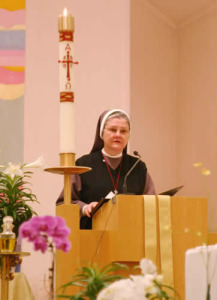
The evening the Opening Worship & Reception took place at Mary Seat of Wisdom Church, with the sermon being delivered by Sister Dr. Lorelei Fuchs. [full text]
The church was nearly full to capacity as key Chicago Area denominational Bishops and Executives from the led the participants in worship.
Sister Dr. Lorelei preached on the theme text for this years workshop and for the 2008 Week of Prayer for Christian Unity, Thessalonians 5:12a, 13b-18.
Following the Sermon, participants took part in a Reaffirmation of their Baptismal Vows, which was led by Bishop Demetrios of Mokissos and Bishop Thomas Paprocki.
View additional photos taken by David P. Skidmore, Canon for Communications of the Episcopal Diocese of Chicago, at the opening worship service.
Tuesday’s activities began with a Continental Breakfast hosted by the National Council of Churches in Christ.
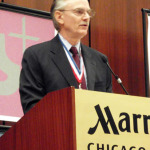
Then, following morning worship, the participants gathered to hear the opening Keynote Address, delivered by Dr. Michael Kinnamon, Executive Secretary of the NCCC. Again, this year, the Keynote Address was sponsored by the Military & Hospitaller Order of Saint Lazarus of Jerusalem.
Michael Kinnamon spoke of the tension between Faith and Order and the search for Justice and Human Rights. He called upon us to recognize and maintain the balance of these two callings. [full text]
He also reminded us that the quest for unity is God’s mission and God’s gift. Our work is secondary to what God is already doing. He reminded us that what God has given to us, must be received.
Morning Seminars: Following the Keynote address, participants moved to multiple seminar rooms to take part in seminars that continued through the remainder of the morning.
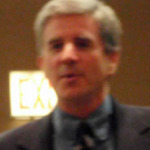
Network Meetings: After lunch the various network groups held events to equip their their members. Those seminars continued through the afternoon. One of the Network event speakers was the Rev. Dirk Ficca, of the Parliament of World Religions who address the ECCO network.
Evening Eucharistic Services: During the evening most of the participants took part in Eucharistic Services. The Catholic service was held a St. Joseph Ukrainian Catholic Church, and the Episcopal/Lutheran/Methodist Eucharist was held at St Mary’s Episcopal Church.
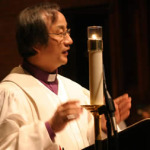
Bishop Hee-Soo Jung brought the message (full text) at the Tuesday evening Episcopal-Lutheran-Methodist joint Eucharist. Bishop Jung is Bishop of the United Methodist Northern Illinois Conference.
Additional photos taken at that service, can be seen in the 2008 Gallery.
Highlights of Wednesday Events at NWCU: Following a breakfast, graciously hosting by the Graymoor Ecumenical and Interreligious Institute, the group again gathered for Morning Prayer.
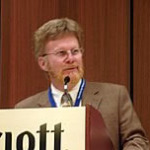
Morning Prayer was then followed by a spirited Bible Study led by Dr. James W. Fleming. The Bible Study on Wednesday and Thursday was sponsored by the American Bible Society.
Dr. Fleming opened up the contextual understanding that is needed to fully appreciate the words of and about Jesus. He helped us to appreciate the relationship of “name” and “character.” With that understanding we understand that we are to pray in the Character or the manner of Jesus, and to not just use his name as a magical formula. One might well pray in the name (character) of Jesus without ever mentioning his name. One might pray, using the name of Jesus, a prayer that is totally devoid of the characteristics that we see in the person of Jesus.
Following the Bible Study, the participants had the choice of ten different seminars they could choose to attend. The workshops covered a wide range of topics.
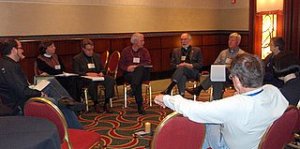
After attending the Seminars, participants broke for lunch which were followed by Network Business Meetings. Below are photos of some of those Network meetings.
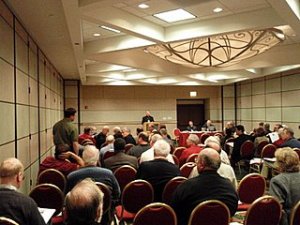
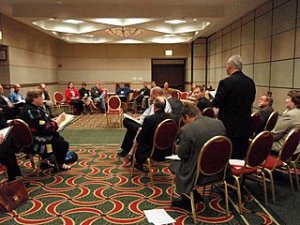
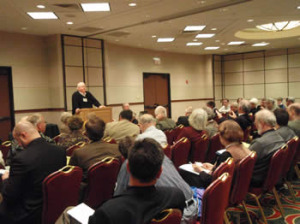
Evening Activities
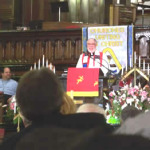
CUIC Eucharistic Service: Many of the Workshop participants attended the annual CUIC Eucharistic Service that has become a regular part of the NWCU. The sermon for the CUIC service was by Bishop Christopher Epting, Ecumenical officer of the Episcopal Church. The service was held at the historic First Baptist Congregational Church a member church of the United Church of Christ.
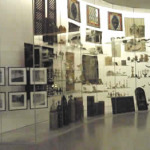
Wednesday Evening Cultural Event: A significant number of the Workshop participants took part in a visit to the Spertus Institute of Jewish Studies in downtown Chicago. The visit included a visit to the Institute’s museum, its library, and then dinner with leaders from the Chicago Jewish Community. The Institute is housed in a new facility that just opened at the end of last year.
NWCU Draws to a Close on Thursday
On Thursday, the participants, gathered for Morning Prayer followed by a continuation of the Bible Study led by Dr. James W. Fleming. He drew upon his research on ancient vineyard practices to bring a fresh understanding to the words of Jesus, “I am the vine, you are the branches. .. ”
The workshop then broke into Seminar Groups, as they had done on the two previous days.
Essay Contest Winners: Following the Seminars, they moved to the Ballroom. As participants gathered for the final session they were presented with the winners of the Theological Student Essay Contest. To download and read the individual winning essays, simply click on the name of the contest winners. The winners (and the Network to which they were related, were:
- CADEIO, Brother Ignatius Schweitzer
- EDEIO, Robert Hendrickson
- ECCO, Jack Lewis
- LERN, John Kalis
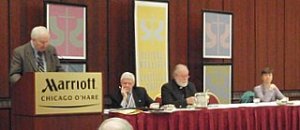
Following the recognition of members of the Local Planning Committee for the current event, and the introduction of the leadership for next years event, they heard from a panel moderated by CBS Executive Producer (Cultural and Religious Broadcasts) John R. Blessington, On the panels topic was “The Local Churches and the Global Church.” Dr. Margaret O’Gara, Professor of Theology at the University of St. Michael’s College, Toronto, Dr. Joseph D. Small, Director, Theology, Worship and Education for the Presbyterian Church, USA and the Very Rev. Leonid Kishkovsky, Director of External Affairs and Interchurch Relations, Orthodox Church in America.
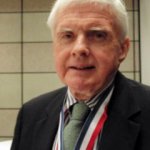
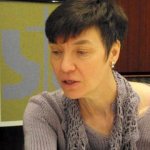
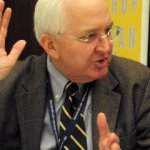
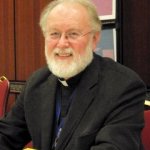
We hope to include the text of the three presentations made by the panelists, in the near future.
Following the panel presentation and the closing luncheon, Betty Gamble brought the 2008 National Workshop on Christian Unity to a close, with the words of a poem by Jamie Potter-Miller.
